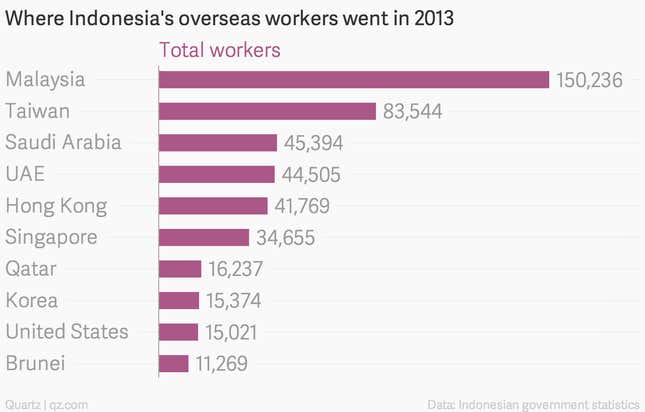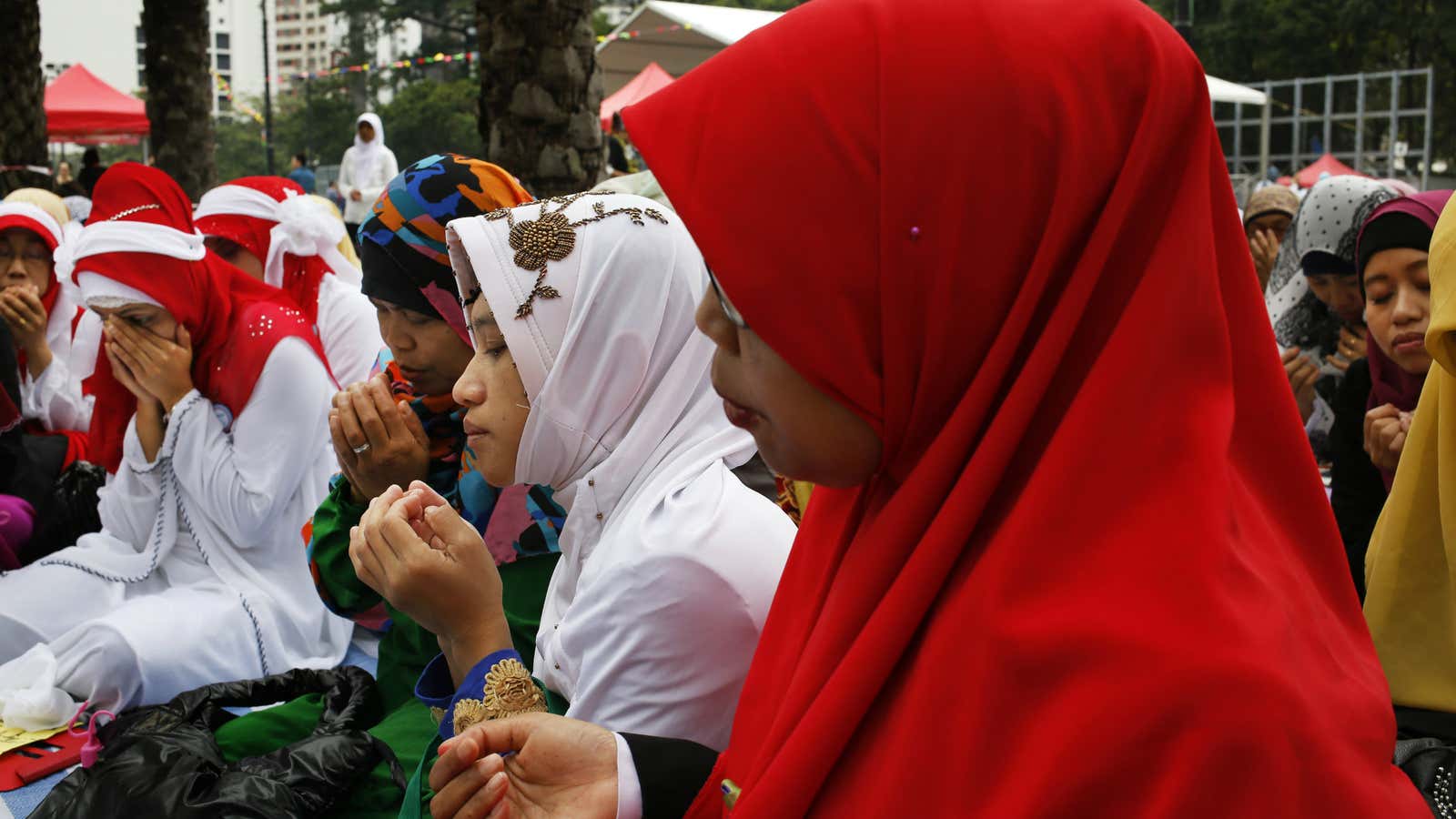A 25-year-old, heavily-pregnant domestic helper from Indonesia who recently disappeared from Hong Kong may be the Islamic State’s first recruit from the Asian financial capital.
Before she went missing in recent weeks, the woman, named Najma, confesses to friends who loaned her money that she planned to join the Islamic State in Syria with her husband, a representative of Hong Kong’s Indonesian Migrant Muslim Alliance told the South China Morning Post.
Najma left the city February 27, the representative said, and while there’s no concrete evidence she traveled to Syria, the woman had previously asked the group how to travel there from Hong Kong.
This is the latest in a series of inconclusive, yet worrying, reports about alleged Islamic State recruiting among Hong Kong’s Indonesian maids, who make up nearly half of the city’s 320,000 domestic workers.Last week, the Apple Daily reported that one Indonesian group in Hong Kong was distributing leaflets advertising a talk by alleged Islamic State supporters. The group that organized the talk denied any link to the Islamic State, but said the two Jakarta-based imams scheduled to speak were denied entry to Hong Kong.
Leung Chun-ying, Hong Kong’s chief executive, warned last weekend that city residents should be vigilant, citing the recruitment rumors:
Hong Kong has been one of the safest cities in the world. However, it is also one of the most open, international cities with high respect of personal freedom and privacy. Against this background and seeing new terrorist threats, we should not take the matter lightly.
Islamic State recruitment in Indonesia is certainly widespread and growing, terrorism experts and local officials said at a conference this week. The terrorist group is using social media and propaganda videos to draw Indonesian volunteers who train with the East Indonesia Mujahideen, and efforts have spread to several parts of the country.
As Indonesian officials sound alarms about recruitment locally, expect those concerns to spread to other areas of Asia beyond Hong Kong. That’s because the number of Indonesian workers working overseas has jumped in recent years. They’re mostly working in Asia and the Middle East, according to the last full-year count available.

In Hong Kong, these female workers are often vulnerable to scams, exploited and underpaid by their employers and usually can’t rely on their own government to protect their human rights, Amnesty International discovered after a lengthy investigation.
This past weekend, hundreds staged a protest in Hong Kong after an Indonesian domestic helper forced to sleep outdoors was killed by a falling concrete slab. Last year, two Indonesian former domestic helpers were killed by a British banker in Hong Kong.
Meanwhile, Indonesia’s consulate in Hong Kong is trying to allay concerns that the city could become a hotbed for Islamic State recruitment. “Employment agencies vet their maids to match prospective employers in Hong Kong,” a consulate official recently told the China Daily, “and Hong Kong employers typically look for helpers who are not too religious.”
